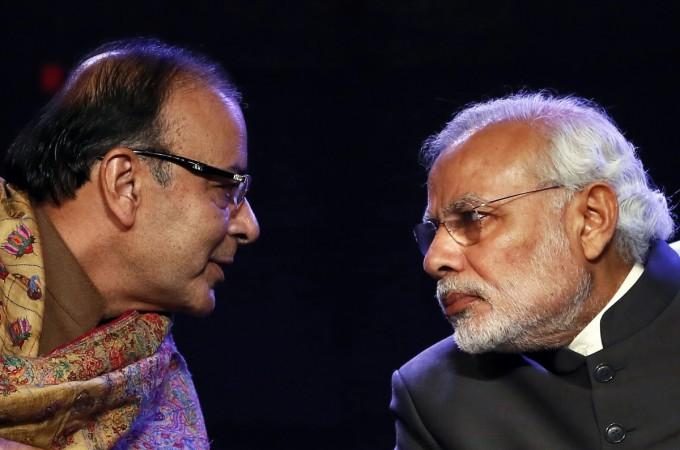
The Narendra Modi government has given a major push to its re-election bid in the general elections with sops to the micro, small and medium enterprises (MSME) sector.
Prime Minister Modi has told a news agency that the central government wanted the compliance threshold for MSMEs raised to Rs75 lakh, while sources say the GST Council may fix it anywhere between Rs50 lakh and Rs75 lakh.
The Reserve Bank of India (RBI) has allowed lenders to restructure defaulted loans of up to Rs25 crore to stressed MSME units.
The government was aware of the hardships MSMEs faced, Modi said. "Whatever difficulties faced by MSMEs that comes to our notice, are placed before GST Council. Our resolve is to simplify GST and give benefits to consumers. The process of simplifying and rationalizing GST will continue," the prime minister was quoted as saying.
The government had been leaning on the Reserve Bank of India (RBI) to help distressed MSMEs which are key to the government's employment generation programme. The ruling Bharatiya Janata Party (BJP considers) of Prime Minister Narendra Modi considers the sector including small traders and businessmen as its core constituency. It has been ailing from the fallouts of market slump, demonetisation, and Goods and Services Tax (GST).
Tuesday's RBI order allows lenders to recast MSME loans provided the total fund and non-fund exposure to such a borrower is limited to Rs 25 crore.
The GST Council, chaired by Finance Minister Arun Jaitley, is expected to meet soon to raise the minimum sales value required for mandatory filing of GST returns from the current Rs20 lakh. Sources told media that the new floor could be fixed anywhere between Rs50 lakh and Rs75 lakh.
The central bank has clarified that MSME debt restructuring would not entail a downgrading in asset classification of the lender.
"The RBI has decided to permit a one-time restructuring of existing loans to MSMEs that are in default but 'standard' as on January 1, 2019, without an asset classification downgrade," a statement said.
Media reports said a meeting of the central bank board on November 19 advised RBI to evolve a scheme to recast the loans of MSMEs.
The RBI has set a deadline of March 31, 2020, for completing the MSME loan restructuring. The lenders would have to set apart and additional provision of 5 per cent of the total outstanding loan, in addition to the money already set aside to cover potential losses. The statement said: "Each bank or non-banking financial company (NBFC) should formulate a policy for this scheme with board approval which shall, inter alia, include a framework for viability assessment of the stressed accounts and regular monitoring of the restructured accounts."
The RBI recognises that the MSMEs are a vital component of the economy contributing significantly to the gross domestic product (GDP), exports, industrial output and employment generation. "Considering the importance of MSMEs in the Indian economy, it is considered necessary at this juncture to take certain measures for creating an enabling environment for the sector," it said.
In November, the prime minister announced a programme to make available up to Rs1 crore loan to MSMEs in 1 hour to energise the sector by addressing the sector's liquidity issues.
The GST Council, chaired by union finance minister Arun Jaitley, will consider raising the sales threshold for compulsory GST registration from ₹20 lakh to anywhere between ₹50 lakh and ₹75 lakh, a source told Mint.
At the meeting on December 22, the GST Council decided to let a ministerial panel review the revenue threshold for GST registration, tax rate on under-construction flats and the feasibility of a concessional tax scheme for small service providers, Mint has reported.













